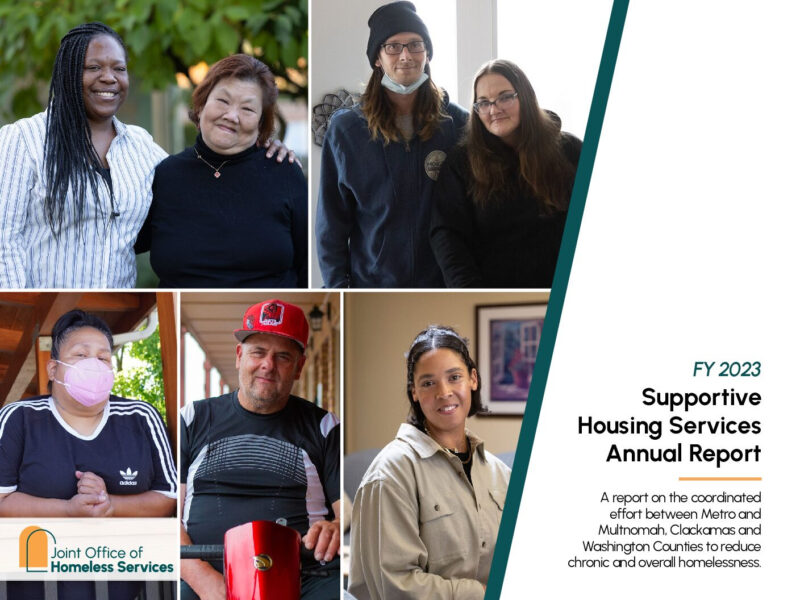Supportive Housing Services Year Two
“It’s just a matter of finding out what they need."
New position funded by the Supportive Housing Services Measure helps bridge gap for people with intellectual and developmental disabilities who are experiencing homelessness
While homelessness is challenging for anyone, people living with intellectual and developmental disabilities can be especially vulnerable. But for a long time, there was a gap between services for people experiencing homelessness and services for people with intellectual and developmental disabilities — creating challenges for people with intersecting needs.
That began to change in 2022, when Takiah McCullough was hired as Multnomah County’s first supportive housing specialist focused on helping people with intellectual and developmental disabilities — a role made possible thanks to funding from the Supportive Housing Services Measure.
For McCullough, who works for the Department of County Human Services’ Intellectual and Developmental Disabilities Division, a main focus of her job is on following up with a list of clients who self-identified as having an intellectual or developmental disability when applying for housing through the Joint Office’s coordinated access system.
“Primarily, my job is to go through that list, reach out to them, see if they’re housed, see if they need any medical accommodations, see if they still qualify for programs or services,” McCullough said.
”If they’re not eligible for certain services, then we want to see that they’re still connected in some kind of way, and that they’re not just lost,” McCullough said.
Even though she’s been in the role for less than a year, McCullough has already been able to make a positive impact.
McCullough connected with one client, Norm, when he was homeless and living in a tent. Norm is one of the people referred to McCullough because he had self-identified as having an intellectual or developmental disability when applying for coordinated access.
“Takiah reached out to me by email, and I was quick in that response,” Norm said. He says things moved fast from there, with McCullough helping Norm move from his tent to an emergency motel, then a bridge shelter. Within just a few months, he was able to move into a one-bedroom apartment with McCullough’s help.
“I get to lock my doors,” Norm said. “I get to leave my stuff however I see fit, and not have to worry about someone going into my spot.”
Before he connected with McCullough, Norm said he wasn’t having success getting connected to housing resources. McCullough changed that for him. “She’s been a blessing,” Norm said.
McCullough also connects with clients based on referrals from other agencies. For one client, Jennifer, McCullough reached out after hearing that Jennifer had been receiving services from the Intellectual and Developmental Disabilities Division but that the agency had lost contact with her.
McCullough reconnected with the client and found that she was living in a non-operational RV — in winter, with no heat or running water. “She was out here alone, with no support,” McCullough said.
McCullough worked with Jennifer to enroll her in Social Security benefits, and make sure she was able to access the Medicaid-funded services available to people with intellectual and developmental disabilities. Within a few months, Jennifer had moved off the streets and into a group home — Fremont Adult Care Home — where she’s been ever since.
“That was something I’m most proud of,” McCullough said. “People with intellectual and developmental disabilities need to feel like there are services out there that can really help them, that can support them.”
Read the full Supportive Housing Services Annual Report
This story originally appeared in the Multnomah County’s Supportive Housing Services Annual Report for Fiscal Year 2022-2023.




